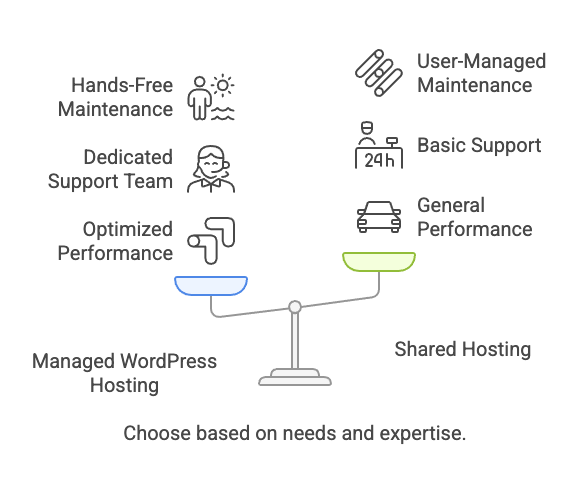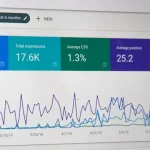Looking to get started with your WordPress site? Chances are, your first step will be to find web hosting. Unfortunately, that’s easier said than done – especially if you’re a relative beginner in that regard.
Let’s see if we can’t clear the air for you. Web hosting comes in many flavors, so our first step is to simplify things a bit. We’ll assume it means shared hosting for this piece.
Designed for clients with relatively simple website, performance, and traffic requirements, shared hosting has several websites occupying a single web server and operating independently of one another.
If it helps, you could think of it as a digital apartment building. There’s also dedicated and VPS hosting, but we won’t get into those here – they’re probably way more powerful than you need at this stage.

Where things get confusing?
Is that you can very easily run WordPress on a shared hosting solution – in fact, it’s actually quite easy to do so. What’s the difference? Why pay more for managed WordPress when shared hosting seems similar?
Two reasons. First, we design a managed WordPress plan specifically to host WordPress. The system tailors itself to WordPress, delivering optimal performance and more features.
The second has to do with the ‘managed’ part of managed WordPress hosting. Basically, when you sign up for a managed hosting plan, your web host takes on the responsibility of all the technical upkeep involved in maintaining your website.
Though they’ll still work with you to help you find the right plugins, they’ll generally handle updates, backups, and any technical challenges that might arise.
Generally..
Managed WordPress plans include dedicated support to resolve any technical issues you encounter.
Not surprisingly, all of the above means managed WordPress plans are a little more expensive than traditional hosting plans. After all, you aren’t just paying for the host’s infrastructure here.
You’re paying for their time and effort – paying for them to go that extra mile for you as a client so you can focus on your core business instead of the logistics of your website.
Ultimately, whether you want to choose managed WordPress hosting, traditional web hosting, or something else altogether is entirely up to you. Consider how much time you have, what your budget looks like, and your level of technical expertise. These factors will guide your decision and help you choose the best option.




